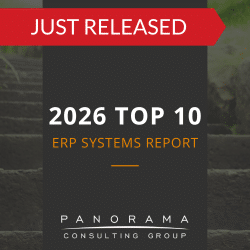- Modern supply chain software plays a pivotal role in helping retailers respond to disruptions and maintain a competitive edge.
- Cloud-based SCM systems excel in flexibility and scalability, making them ideal for retailers managing complex, multi-channel supply chains.
- On-premise SCM solutions offer predictable costs and enhanced customization capabilities, supporting retailers seeking financial consistency and those with unique operational requirements.
- The decision between cloud-based and on-premise SCM systems hinges on factors like scalability, cost structure, and operational complexity.
- Balancing initial investments, total cost of ownership, and long-term business needs is critical to selecting the right supply chain software.
In the fast-evolving landscape of retail, few areas demand as much precision and foresight as supply chain management (SCM). Supply chain decisions ripple through every aspect of operations, influencing customer satisfaction, and ultimately, profitability.
For retailers considering the benefits of supply chain transformation, the choice between cloud-based supply chain software and on-premise solutions is critical.
Today, we’re exploring the strategic implications of cloud vs. on-premise supply chain software for retailers. By understanding the benefits and challenges of each, you can make a decision that aligns with your organization’s needs and operational realities.
The Role of Supply Chain Software in Retail Transformation
At the core of any successful retailer’s operations lies an efficient, agile supply chain. Retail supply chain software has become indispensable for managing inventory, streamlining logistics, and meeting the ever-changing expectations of customers. Whether it’s ensuring real-time visibility of stock levels or responding quickly to disruptions, SCM software plays a pivotal role in bridging operational gaps.
2025 Clash of the Titans
SAP, Oracle, Microsoft, and Infor each have a variety of systems that can support data-driven decision-making. We surveyed customers of these four vendors to find out what their selection and implementation process was like.
If you’re hoping to transform your operations with a new SCM system, keep reading for a comprehensive comparison of cloud-based systems vs. on-premise solutions.
Option 1: Cloud-Based Supply Chain Software
Benefits of Cloud-Based SCM in the Retail Industry
Cloud-based systems offer flexibility and scalability, qualities particularly crucial in the retail sector. Hosted on remote servers and accessed via the internet, these systems have the following advantages:
1. Enhanced Scalability for Retail Peaks and Valleys
Retailers face fluctuating demands, especially during holiday seasons or promotional events. Cloud-based retail supply chain management software allows businesses to scale their operations up or down without incurring significant hardware investments.
For instance, a large U.S. retailer might use a cloud-based system to handle an influx of orders during Black Friday promotions. This would optimize inventory allocation and ensure on-time delivery, creating a positive customer experience.
2. Real-Time Data and Collaboration
Cloud platforms foster cross-functional collaboration and provide real-time visibility. Retailers with geographically dispersed operations can benefit from instant access to centralized data, ensuring that every team member—from procurement to last-mile delivery—operates with a unified understanding of supply chain status.
3. Lower Initial Investment and Faster Deployment
Unlike on-premise systems that require significant upfront capital for hardware and software installation, cloud systems operate on a subscription basis. This makes them especially appealing to mid-sized retailers seeking robust functionality without prohibitive costs.
Moreover, deployment times for cloud-based solutions are typically shorter, enabling quicker time-to-value. For retailers managing both physical stores and eCommerce channels, this means they can start tracking shipments and optimizing delivery routes within a matter of months.
Challenges of Cloud-Based SCM
While the benefits are substantial, cloud-based supply chain management systems are not without challenges.
1. Dependence on Internet Connectivity
Retailers operating in regions with inconsistent or slow internet connectivity may encounter disruptions in accessing their supply chain software.
For example, a retailer with stores in shopping malls or busy urban areas may experience inconsistent internet connectivity during peak hours due to network congestion. This could affect the SCM system’s ability to process sales and update inventory across locations.
2. Security Concerns
Although cloud providers invest heavily in cybersecurity, data breaches remain a potential risk. Retailers must ensure their chosen vendor complies with robust data protection standards like GDPR or CCPA.
High-end retailers or those with loyalty programs often handle more sensitive data, such as detailed customer profiles, purchase histories, and payment information, making compliance with standards like GDPR or CCPA especially critical.
3. Ongoing Subscription Costs
The pay-as-you-go model of cloud-based solutions can become costly over time. While the lower upfront investment is attractive, the recurring subscription fees can accumulate, particularly for large-scale retailers requiring features like advanced demand forecasting or real-time load balancing.
Option 2: On-Premise Supply Chain Software
Benefits of On-Premise SCM in Retail
On-premise solutions have long been the default choice for enterprises requiring a high degree of control and customization. Installed on the company’s servers and maintained in-house, these systems have many advantages for certain types of retailers:
1. Control and Customization
On-premise retail supply chain software allows retailers to tailor every aspect of the system to their needs. Whether it’s integrating with proprietary tools or building unique workflows, this flexibility can be invaluable for organizations with specific operational requirements.
For instance, an electronics retailer might customize its on-premise system to synchronize inventory data with a bespoke sales analytics platform. This integration would improve forecasting accuracy and streamline order fulfillment, while allowing the retailer to maintain the proprietary features of its analytics platform.
2. Enhanced Data Security
For retailers concerned about data breaches, on-premise systems provide the reassurance of storing data internally. This minimizes the exposure to third-party risks, making it an ideal choice for organizations operating in highly regulated industries, such as pharmaceuticals and food retail.
3. Predictable Long-Term Costs
While the upfront costs of on-premise software are significant, they can be offset by predictable maintenance and upgrade expenses. For larger retailers with the resources to manage SCM systems in-house, this predictability can be worth the expense. It simplifies long-term financial planning, allowing companies to focus their budgets on customer-facing initiatives, such as enhancing in-store experiences.
Challenges of On-Premise SCM
Despite their advantages, on-premise solutions come with limitations that include the following:
1. High Initial Investment and Maintenance Requirements
For many retailers, the upfront costs of on-premise systems can be burdensome. Beyond purchasing the software itself, these solutions demand investments in dedicated servers, data centers, and IT infrastructure—expenses that can overwhelm small and mid-sized retailers.
Maintenance adds another layer of complexity, as retail-specific needs, like point-of-sale integrations, may require specialized IT maintenance personnel. This ongoing expense can divert resources from growth initiatives, such as expanding eCommerce capabilities.
2. Limited Scalability
For retailers, on-premise systems often lack the flexibility needed to handle rapid growth or seasonal fluctuations. Scaling up operations to meet demand spikes requires additional hardware purchases and lengthy installations.
This rigidity is particularly challenging for retailers managing omnichannel operations, where the ability to quickly adjust inventory and logistics workflows is critical to meeting customer expectations.
3. Longer Implementation Timelines
Implementing on-premise SCM systems requires extensive planning, hardware setup, and customization. This can postpone critical benefits, like improved inventory management and streamlined logistics.
Additionally, the implementation can divert resources from managing daily operations, creating bottlenecks in areas like coordinating replenishment schedules for seasonal stock, where consistent oversight is critical.
Key Considerations for CEOs
For high-level executives tasked with steering their organization toward sustainable growth, the decision between cloud vs. on-premise supply chain software is far from straightforward. Our enterprise software consultants help companies make this decision by focusing on the following considerations:
1. Assess Your Organization’s Agility Needs
If your business frequently faces rapidly changing market conditions or operates within highly variable demand cycles, a cloud-based system might be the better fit. Retailers managing intricate, multi-channel supply chains often benefit more from the real-time coordination and scalability that cloud solutions provide.
2. Leverage Independent Software Selection Consultants
Avoid vendor bias by working with independent consultants to evaluate your SCM software options. They can provide objective insights into the pros and cons of each system based on your specific requirements.
Our business software consultants often advise conducting a thorough cost-benefit analysis when deciding between cloud and on-premise software.
3. Consider Industry Trends
Many retailers are moving toward cloud-based SCM solutions due to their alignment with their overall digital strategy. These systems integrate seamlessly with other digital initiatives, such AI analytics tools. By connecting supply chain software with modern and emerging technologies, companies can enhance demand forecasting, pinpoint inefficiencies in real time, and address potential disruptions.
The Future of Retail Supply Chain Software
The choice between cloud-based and on-premise supply chain software is a strategic one, with profound implications for how retailers operate and grow in an increasingly competitive landscape. By aligning your decision with organizational goals, you can lay a solid foundation for both innovation and operational excellence.
Our ERP consultants have helped numerous companies strengthen their supply chain capabilities by implementing modern enterprise software. Contact us and we’ll help you thrive in the face of disruption.














